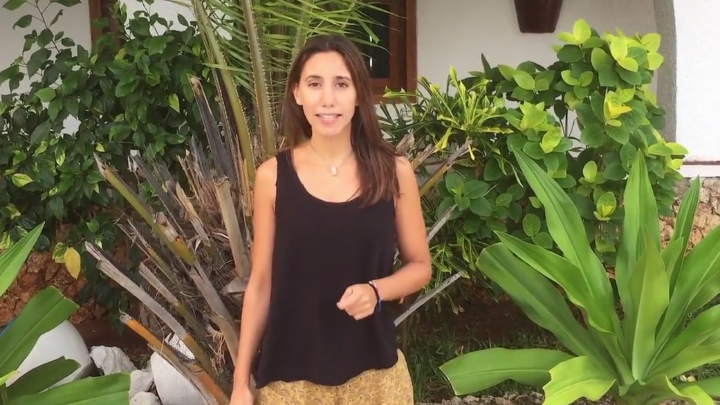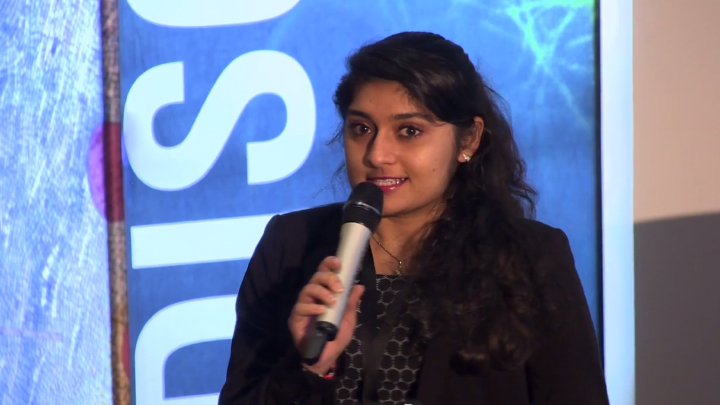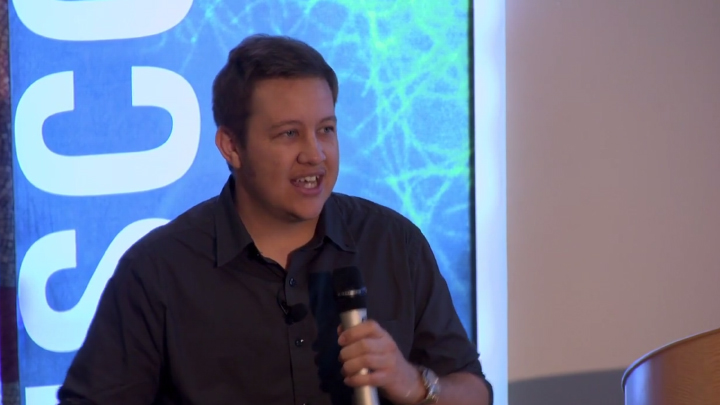Seeding Labs: Providing Global Access to Research Equipment
Script
I will echo everyone's sentiments so far in saying thank you so much. This has really been a pleasure and an honor, and I feel like my brain is so much more woken up today as a result of hearing the work of all of you. Clearly, clearly every single one of us is here in this room because we believe in the power of science, and we have all been living with the benefits of science every minute of our lives every day, and yet, and yet there are myriad problems that persist in the world that affect millions of people that are still waiting for scientific solutions.
The last few years have proven to us more than ever before that something that starts as a seemingly small problem in one corner of the world grows to epidemic proportions so rapidly and ends up on our doorstep in months. Diseases like Ebola, like Zika, these do not recognize borders on a map, and so our efforts to solve them have to transcend borders as well. This is why I started Seeding Labs. What we do at Seeding Labs is identify talented scientists around the world, make sure they have connections to the resources that they need, and build a community of practice of partners across the world to share resources, to share expertise, and to power the science of the future.
We are catalyzing the innovative power of scientists in the developing world to solve some of the world's most pressing problems. We start by identifying this pipeline of talented, pipeline of talent, well-trained, motivated scientists working at strong and supportive institutions around the world to build first-rate centers of research. Our motto at Seeding Labs is that talent is everywhere, and it truly, truly is. We're working with scientists like Kingdom Kwapata, who is a Fulbright Scholar who's gone home to Malawi to breed new varieties of crops to defeat famine in his country. Chichonyi Kalungia, a Rhodes Scholar gone home to Zambia to develop new antimicrobial drugs, and alumni of some of the most prestigious institutions in the world, like Harvard Medical School alum Dr. Melanie Cornejo, who is now leading the creation of Peru's first biomedical engineering department focused on nanotechnology and nanomedicine.
Any one of them could have stayed here and pursued their careers in well-resourced, well-known institutions, but they've chosen to go home to tackle problems on the front lines with their communities and, most importantly, to train the next generation of researchers, of doctors, pharmacists, nurses, and teachers. When they go home to do this incredibly important work, though, they find themselves operating in very, very different conditions, and above all, they find that they quite simply do not have the tools to get the work done.
A survey that we conducted this year of African scientists, 76% of them told us they don't have access to the equipment to conduct, to complete their current research projects, and 91% of them said their institutions don't have adequate equipment to give their students a hands-on education. This is a solvable problem, and we're solving it with your help. We've put together a network of partners, over 100 and counting, include everything from R&D companies and device manufacturers to academic institutions, nonprofits, and government agencies around the world.
These partners are contributing financial resources. They're contributing surplus lab equipment and scientific expertise so that together we can meet the needs of our colleagues around the world. For our part at Seeding Labs, we have spent years optimizing an end-to-end process to make sourcing surplus lab equipment an easy process for people like you, to screen the quality of that equipment to match it to the technical specifications and needs of our colleagues overseas, and to stay in touch with them long after the device is taken out of the box, as it's installed, as it's used, and as it's maintained.
By focusing the resources of all of us together, what we're doing is magnifying our collective impact and turning something that might otherwise have been mundane and not, even wasteful, managing and disposing of surplus assets, into a force for global good. As a result, collectively, together, we have been able to dispatch four million dollars' worth of lab equipment to 45 institutions in 26 countries to scientists who are using this equipment in important problems of projects of local and global importance in health and medicine, agriculture, and nutrition, energy, and the environment.
Every year on the anniversary of their equipment arriving, they report back to us on how that equipment has made a difference. Of six institutions reporting just this summer alone, 5,300 undergraduates are using that equipment in their classes. 31 master's students and 23 PhD students have finished their dissertations, and their professors have made tangible progress on over two dozen projects. Professors like Dr. Fabrice Boyom in Cameroon, who has identified seven lead compounds, potential drug molecules, against toxoplasmosis, a parasitic disease that affects 70% of women of childbearing age in Cameroon, and Dr. Aneisha Collins-Fairclough in Jamaica. She's using metagenomics to mine runoff from the landfill on the outskirts of Kingston to look for novel microbes with impact and implications on everything from bioremediation to new antibiotics. Just these scientists and their colleagues from just those six institutions have leveraged our investment of lab equipment to secure $1.2 million in new funding for their research and attract collaborators from all over the world.
This is the crucial part. By connecting them to the tools that they need, we're putting control back in their hands to move away from needing aid and move their science towards sustainability. On behalf of them and on behalf of Seeding Labs, I want to say thank you to all of you, because you are part of the movement that's been making this happen. 2017 will mark Seeding Labs' 10th year in operation. We would not have reached that milestone without you.
The next 10 years, there's so much more to be done. There are so many more scientists eager to learn and ready to get to work, and they need all of us. They need our us sharing our resources, sharing our financial support to be the ones to help them. The equipment that you share, the resources that you provide, could be the key to unlocking Zika research in this lab in the Dominican Republic, could be the key to training these medical lab technician students in Ghana.
Seeding Labs, we need you too. We want to work with you to create new opportunities for our entire global workforce in science, new fellowships, and exchange programs, and training platforms, and pathways to take the discoveries from these labs to the marketplace and to the public that needs them the most, because, after all, this, all of us working together, this is solidarity in science. This is what it will take for us to solve this century's greatest problems to make life measurably better for people worldwide and to create and unlock discoveries that we have yet to even imagine. Thank you.
Related Videos
-

Bridging the Gap Towards a Truly Global Scientific Community -

Solving Water Scarcity -

The Animated Foundations of Ecology

